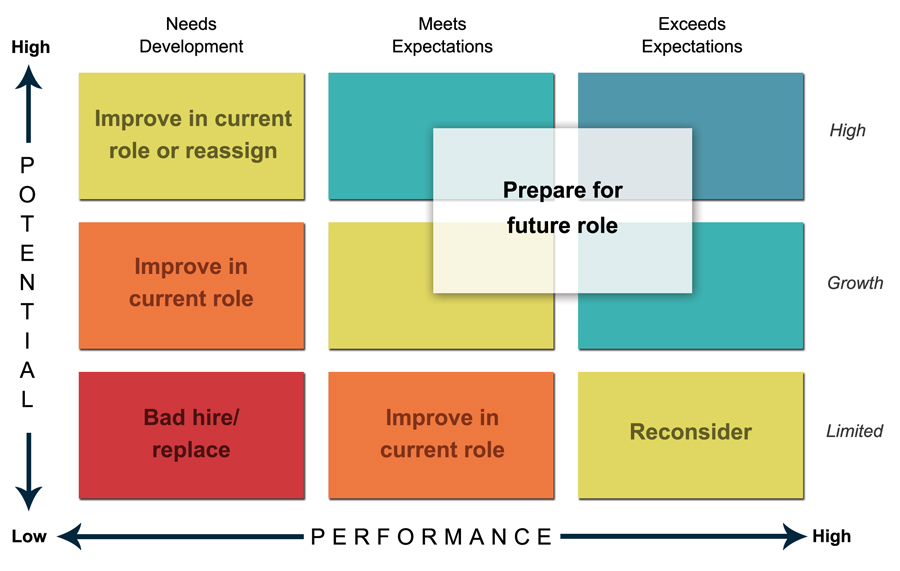I’m turning 35 this fall and I’ve never really even been a manager anywhere — depressing — so I don’t know very much about what tends to get people promoted, honestly. I’ve observed the promotions of other people, and I think it has more to do with relationships than anything. If you’re being totally honest, senior executives at most companies tend to spend the majority of time with themselves. Are they really going to promote someone they don’t want to spend time with up the chain? Probably not. We should try to become comfortable with ideas opposite from our own, but that’s not often how senior teams think about things.
Here’s the other dangerous issue: often, we promote off performance, which seems logical. You do well, you get rewarded. Isn’t that what our parents taught us? Sure, but that predominantly applies to (a) five year-old children and (b) dogs. It’s flawed to apply that methodology to a 32 year-old, and here’s why: if their performance is great, relative to industry, that often means they are helping someone else make money. That’s what “performance” means to a lot of people at a lot of jobs. To do that, you’re probably a Type-A hard-charger. You probably are deliverables-driven and have limited time for “soft ideas” like engagement, culture, communication, etc. You have a job to do and you do it. You slay dragons.
You want to make that person a boss? That has horrible repercussions for every arm of your company.
I worked at McKesson summer 2013. Job sucked. Read more about it here. Anyway, when I was there, I proposed this idea to help them with “bad managers,” which is a problem they were seeing all over the chain. Here’s the basic concept:
- You can be promoted up a “manager” level (where you manage others).
- You can be promoted up an “individual contributor” level (where you don’t).
- You can make the same amount of money on either track.
The problem most organizational structures have is that the only way to make more money is to eventually manage people. But most people aren’t cut out to manage others, because when you’re in control of others, that means a certain degree of empathy, respect, and understanding. It’s still about the deliverables, yes — all jobs are — but it’s not all about the deliverables, and many managers miss that. Humans aren’t just machines designed to finish tasks. They have wives and kids and dead parents and hangovers and depression; those need to be contextually taken into account, because that will make them work harder. Most bosses don’t get that, and just chase deliverables.
There’s been research out of Stanford that potential might matter more than achievement, and that’s logical to me. The problem is, you can’t explicitly promote off “potential.” That can get you sued, or lose your top performers — who will go elsewhere thinking that guys with soft, fuzzy skills like “communication” jumped them in the hierarchy.
But you need a balance of promoting off sheer performance — because someone that’s out-performing others in most orgs isn’t the type of person you then want managing those others — and potential. Fast Company mentions that here, noting:
Employee performance defines ability and expertise. It is a parameter you must keep in mind to identify a leader, but look beyond performance. What you also need to look for is the employee’s aptitude, desire to grow, and overall potential.
Some individuals are not cut out to be leaders, although their performance is at the higher end of the scale. They don’t have the capacity to play leadership roles, and are content to be followers. This is why potential should outweigh performance as a parameter when zeroing in on a possible future leader.
I feel this way a little bit in my current job. It’s not a huge organization, and it’s relatively flat. I won’t get promoted much, if at all. But I do think I have aptitude, a desire to grow, and overall potential. The problem is: I work in an area that doesn’t really make money (the website), and as such, I’ll always be a lower-performer with regards to revenue. Oh well. Just gotta look for my spots, I guess.
